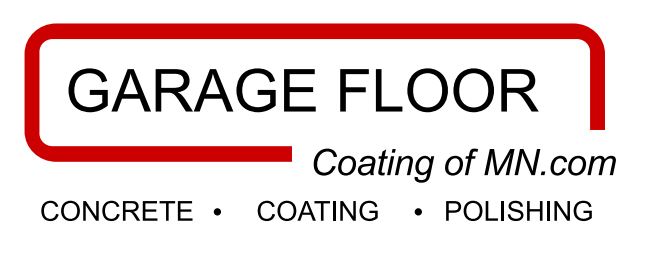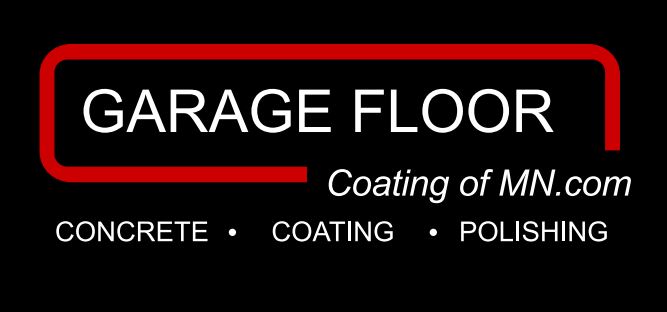What is Industrial Epoxy Floor Coating? How Long Does Industrial Epoxy Last?
Durability and longevity are vital considerations when choosing the perfect flooring material for your commercial or industrial space. You don’t want to face frequent repairs and unnecessary downtime due to an inadequate floor surface. Due to its strength, resistance, and aesthetic appeal, industrial epoxy floor coating is a popular choice for many businesses in Minnesota.
This blog post will explore what industrial epoxy floor coating is, the factors that influence its lifespan, and how long you can expect it to last, especially when considering options like an epoxy floor clear coat in Minnesota.
What is Industrial Epoxy Floor Coating?
Industrial epoxy floor coating is a synthetic resin applied over concrete substrates to create a durable, long-lasting flooring surface. This coating comprises two main components: resin and a hardener. When mixed, they chemically bond to form a rigid plastic material that is both tough and visually appealing.
There are several types of epoxy flooring, each designed for specific applications and environments. These include:
- Self-Leveling Epoxy Flooring
- Mortar Epoxy Flooring
- Graveled Epoxy Flooring
- Flake Epoxy Flooring
- Terrazzo Epoxy Flooring
- Metallic Epoxy Flooring
With the variety of options available, industrial epoxy floor coating can suit the specific needs and preferences of a variety of different businesses.
Benefits of Epoxy Floor Coating
Industrial epoxy floor coating offers numerous advantages for commercial and industrial spaces. These include:
- High Durability: Epoxy floors are exceptionally hard-wearing and can endure heavy foot traffic, machinery, and even vehicular traffic, making them ideal for industrial settings.
- Chemical Resistance: Epoxy is resistant to many chemicals, making it an excellent choice for factories and warehouses where spills are common.
- Slip-Resistant: Most epoxy floorings have additives to increase their slip resistance, making them a safe and practical option for high-traffic areas.
- Aesthetic Appeal: Epoxy flooring can be customized with various colors, patterns, and finishes, including a clear coat, to enhance the visual appeal of your space.
- Ease of Maintenance: Once installed, epoxy floors are easy to clean and maintain, requiring only regular sweeping and occasional mopping.
- Cost-Effectiveness: In the long run, epoxy floors are a cost-effective flooring solution due to their durability and low maintenance requirements.
Average Lifespan of Industrial Epoxy Flooring
The lifespan of industrial epoxy flooring can vary significantly based on several factors, but on average, it will last 5 to 10 years in a commercial or industrial setting. In residential settings, where the usage is typically lighter, epoxy floors can last 20 to 30 years.
Proper installation and maintenance play critical roles in achieving these long lifespans. A poor coating application or inadequate surface preparation can lead to premature peeling and wear. Similarly, regular cleaning and occasional reapplication of a clear coat can help extend the lifespan of your epoxy floor.
Factors Influencing the Lifespan of Epoxy Floors
Several factors determine how long your epoxy floor will last:
- Strength of the Concrete Base: The strength of the concrete substrate base is crucial. Industrial floors should have a minimum strength of 3,000 PSI to support the epoxy coating adequately. Weaker concrete can lead to premature failure of the epoxy layer, especially under heavy loads.
- Surface Preparation: Proper preparation of the concrete surface is vital for the epoxy to bond correctly, including cleaning the surface of oil, dirt, dust, and other debris and repairing any cracks or blemishes. A smooth, well-prepared surface ensures a stronger bond and a longer-lasting floor.
- Thickness of the Epoxy Layer: The thickness of the epoxy layer significantly affects its durability, resistance to wear and tear, and the floor’s lifespan. A thickness of 50 microns or more is suitable for industrial applications.
- Quality of the Topcoat: Adding a high-quality topcoat, such as urethane, enhances the floor’s resistance to scratches and abrasions. A clear epoxy floor coat adds an extra layer of protection and enhances the floor’s aesthetic appeal.
- Traffic Levels: The amount and type of traffic the floor endures directly impact its longevity, as high levels of foot traffic or heavy machinery can wear down the epoxy faster. Installing a topcoat can help mitigate this wear.
- Industry Type: Different industries have varying impacts on epoxy flooring. For example, chemical plants might experience more wear due to spills, while warehouses may have more damage from heavy machinery.
- Exposure to UV Light: Epoxy flooring is susceptible to UV degradation. Prolonged exposure to sunlight can cause the epoxy to yellow and degrade, making epoxy floors best suited for indoor environments with minimal UV exposure.
Maintenance Tips to Extend the Life of Your Epoxy Floor
To ensure your industrial epoxy flooring lasts as long as possible, consider implementing these maintenance tips:
- Regular Cleaning: Establish a cleaning schedule to remove dirt and debris daily. Use soft mops, hot water, and mild cleaners for regular cleaning.
- Timely Repairs: Address any damage, such as cracks or chips, as soon as they appear. Minor issues can quickly escalate if left unattended, compromising the floor’s integrity.
- Reapply Coatings: Periodically reapplying a clear coat can rejuvenate the epoxy floor and extend its lifespan. This process involves applying a fresh layer of epoxy or a protective topcoat to the existing surface.
- Professional Installation: Ensure that professionals install your epoxy floor. Proper installation is critical for achieving your epoxy floor’s maximum lifespan and performance.
Signs That Your Epoxy Floor Needs Replacement
Even with the best maintenance practices, there will come a time when your epoxy floor needs replacement. Here are some signs to watch for:
- Scuffs and Abrasions: Deep scratches and scuffs that affect the structural integrity of the epoxy indicate that it’s time for a replacement.
- Localized Breakdowns: The epoxy can crack, split, or become damaged in certain spots in high-traffic areas or under heavy machinery.
- Miniature Cracking: Small cracks can worsen over time and compromise the entire surface. If these cracks are widespread, it may be time to replace the floor.
The Bottom Line
Industrial epoxy floor coating is an excellent choice for commercial and industrial properties in Minnesota. By understanding the factors that influence the lifespan of epoxy flooring and following proper maintenance guidelines, you can ensure that your epoxy floor lasts as long as possible.
If you’re considering getting an epoxy floor clear coat in Minnesota, Garage Floor Coating of MN offers high-quality epoxy floor coating services for all your industrial, commercial, and residential needs. Contact us today to learn more about our services and how we can help you achieve the perfect flooring for your space.




